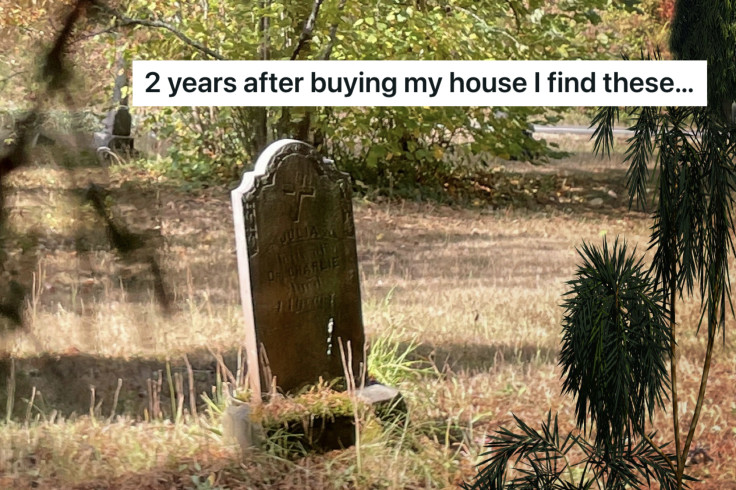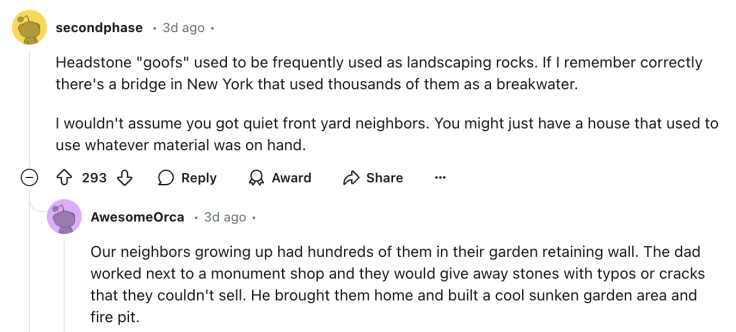
A homeowner finally got around to cleaning up his overgrown front yard, only to discover headstones and rocks appearing to mark old grave sites.
It's been a couple of years since the man bought the property he lives on, and clearing the large yard's wild vegetation had been low on his to-do list. Once he began, however, he ran into an unexpected obstacle.
"Two days into working, I find two (human) headstones. One from 1880 and the other from 1941. I also found about a half a dozen rocks arranged like they could be makeshift headstones in the same area," he told fellow homeowners on the social networking site Reddit.
Now he's not sure how to proceed. "Normally I would leave them where I found them but they're in, what will be, the front yard," he explained in r/homeowners before asking if anyone had advice for him on what he should do next.
Members of the forum responded with a range of feedback.
Some offered the explanation of "headstone goofs," suggesting the headstones could just be misprints that wound up in the yard for potential repurposing.

Others noted how common backyard burials used to be.

Commenters even plotted out the potential tax (and "other") benefits of living on a burial ground.

Still other Redditors were less worried about local tax law and more focused on the supernatural risks.

There were those who advised to embrace the spooky find.

There were other commenters who didn't necessarily have any advice, but shared interesting tidbits nonetheless.


Or this comment, that was not helpful whatsoever, but made a point.

While "DIY" backyard burials were commonplace in early American history, they've become less so over time. However, according to World Population Review, private property burials are still allowed in all but two U.S. states, though zoning and licensing laws differ by state.
As this Redditor found out, discovering a cemetery plot in your yard is not outside the realm of possibility. Something to think about this Halloween, and, perhaps, a good excuse to put off mowing your lawn for a couple years.
© 2024 Latin Times. All rights reserved. Do not reproduce without permission.









